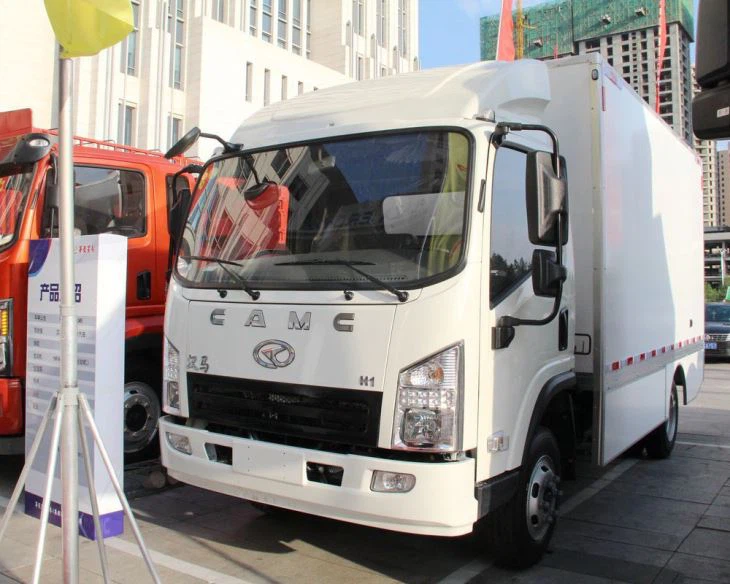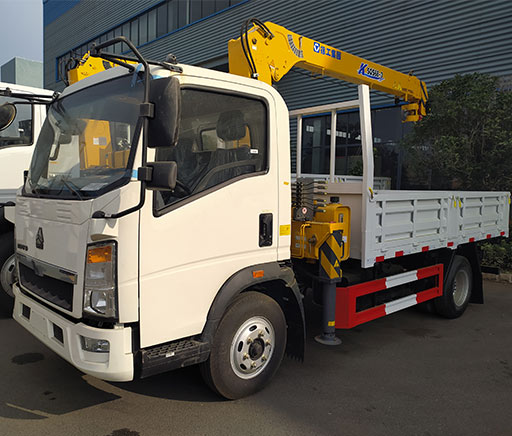What is a Roll Off Truck? Understanding Its Functions, Benefits, and Uses

Introduction
Roll off trucks are specialized vehicles designed for the transportation, delivery, and collection of containers. They primarily cater to the needs of industries such as construction, waste management, and demolition. With their unique mechanism and versatility, roll off trucks have become a staple in modern logistics and waste disposal services. This article will explore the intricacies of roll off trucks, including their structure, operation, benefits, and various applications.
What is a Roll Off Truck?
A roll off truck is a heavy-duty vehicle equipped with a hydraulic system that enables it to load and unload containers easily. These trucks are typically used to transport large containers known as roll-off bins or dumpsters, which come in various sizes to accommodate different types of waste or materials. The ability to roll the container off the truck and onto the ground distinguishes roll off trucks from other commercial vehicles.
How Does a Roll Off Truck Work?
Roll off trucks utilize a hydraulic system to tilt and lower the truck bed, allowing the container to roll off the back. Here’s a simplified breakdown of the process:
1. **Loading the Container:** The truck approaches a filled dumpster, and the driver positions it correctly.
2. **Tilting the Truck Bed:** The driver engages the hydraulic system to tilt the truck bed, creating an incline that lets gravity assist in the roll-off process.
3. **Container Roll-Off:** The roll-off bin rolls back onto the ground as the truck bed is tilted.
4. **Returning the Empty Truck:** After the container is unloaded, the truck returns to pick up additional containers as needed.
Types of Roll Off Trucks
There are several types of roll off trucks, each designed for specific needs:
1. **Standard Roll Off Truck:** The most common type, used for general waste transportation.
2. **Compaction Roll Off Truck:** Equipped with compactors, these trucks compress waste inside the container, allowing for more efficient collection.
3. **Vacuum Roll Off Truck:** Designed for liquid waste and sludge, this type includes a vacuuming system to suck up materials.
4. **Flatbed Roll Off Truck:** Ideal for transporting oversized loads, this type can carry various container types.
Components of a Roll Off Truck
A roll off truck consists of several essential components that enable its unique functionality:
Chassis
The chassis of the truck provides the structural frame to support the weight of the containers and other components.
Hydraulic System
This system is crucial as it provides the necessary power to tilt the truck bed and operate the loading/unloading mechanism.
Container Variants
Roll off containers come in various sizes, typically ranging from 10 to 40 yards, adapting to the needs of different projects.
Benefits of Using a Roll Off Truck
There are several advantages to using roll off trucks in both commercial and residential contexts:
Efficiency
Using roll off trucks streamlines the waste removal process, allowing for quick and efficient loading and unloading.
Versatility
These trucks can handle various waste types, including construction debris, household waste, and recyclable materials.
Cost-Effectiveness
Hiring a roll off truck can be more economical than multiple trips with smaller vehicles, especially for larger projects.
Environmental Impact
Roll off trucks are instrumental in promoting responsible waste management, leading to better recycling practices and reduced landfill usage.
Applications of Roll Off Trucks
Roll off trucks are used across numerous industries, including:
Construction
In construction, roll off trucks are essential for transporting materials to and from job sites. They handle everything from concrete to metal scraps.
Demolition
Roll off trucks are vital in demolition projects for quick removal of debris and rubble, ensuring job sites remain safe.

Landscaping
Landscape projects often generate substantial amounts of green waste, which roll off trucks can efficiently transport to composting facilities.
Residential Cleanouts
Home renovations or cleanouts benefit significantly from roll off trucks, making it easy for homeowners to dispose of unwanted items effectively.

How to Select the Right Roll Off Truck Service
Selecting the right roll off truck service is crucial for successful project execution. Here are some tips to consider:
Determine Your Needs
Consider the size and type of waste you need to dispose of. This will help you choose the appropriate container size.
Check for Licensing and Insurance
Ensure the service provider has the necessary licenses and insurance to operate safely and legally.
Read Reviews and References
Check customer reviews online or ask for references to gauge the company’s reliability and quality of service.
Compare Pricing
Request quotes from multiple companies and compare pricing. Look out for any hidden fees.
Maintenance of Roll Off Trucks
Regular maintenance is crucial to ensure the longevity and effectiveness of roll off trucks:
Routine Inspections
Conduct regular inspections of the hydraulic system, brakes, and tires to maintain optimal performance.
Fluid Checks
Regularly check and replace hydraulic fluids to ensure the smooth operation of lifting mechanisms.
Brake Maintenance
Ensure brakes are in excellent condition, as they are essential for the safe operation of any heavy vehicle.
Common Problems and Solutions

Even the best roll off trucks can experience issues. Here are some common problems and their solutions:
Hydraulic Failures
**Problem:** The hydraulic system may fail to lift or lower the container.
**Solution:** Check fluid levels and inspect for leaks. If the problem persists, consult a professional.
Brake Malfunctions
**Problem:** Poor braking can pose significant safety risks.
**Solution:** Schedule prompt inspections and repairs to restore full braking capabilities.
Tire Wear
**Problem:** Excessive wear can lead to blowouts.
**Solution:** Conduct regular tire rotations and maintain proper inflation.
Cost of Renting a Roll Off Truck
The cost of renting a roll off truck varies based on factors such as location, container size, and rental duration. Here’s a general breakdown:
| Container Size (Yards) | Estimated Rental Price (Per Week) |
|————————|————————————-|
| 10 | $250 – $350 |
| 20 | $350 – $450 |
| 30 | $450 – $550 |
| 40 | $550 – $650 |
Note that prices may vary by region and company, so it’s advisable to get quotes from multiple providers.
FAQ Section
1. What materials can I put in a roll-off container?
You can put construction debris, yard waste, furniture, and general household garbage. However, hazardous materials, such as paints and chemicals, are typically prohibited.
2. How long can I keep the container?
Most rental companies allow you to keep the container for a week. Extended rental periods may incur additional fees.
3. Do I need a permit for a roll-off container?
It depends on local laws. You may need a permit if the container will be placed on a public road or sidewalk.
4. How do I know what size container I need?
Assess the volume of material you need to dispose of. Many companies offer size guides and can help you determine the best fit.
5. What happens after the container is full?
Once filled, the rental company will schedule a pickup to take the container to a disposal or recycling facility.
6. Are there weight limits for roll-off containers?
Yes, containers have weight limits that vary by size. Exceeding these limits can incur additional fees. Always ask your provider for specific weight limits.
